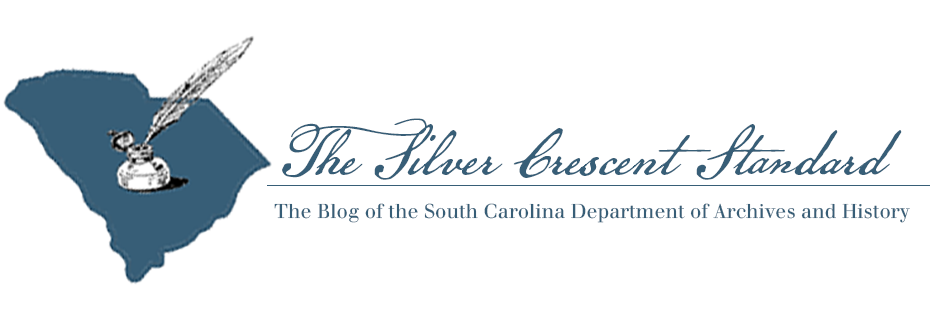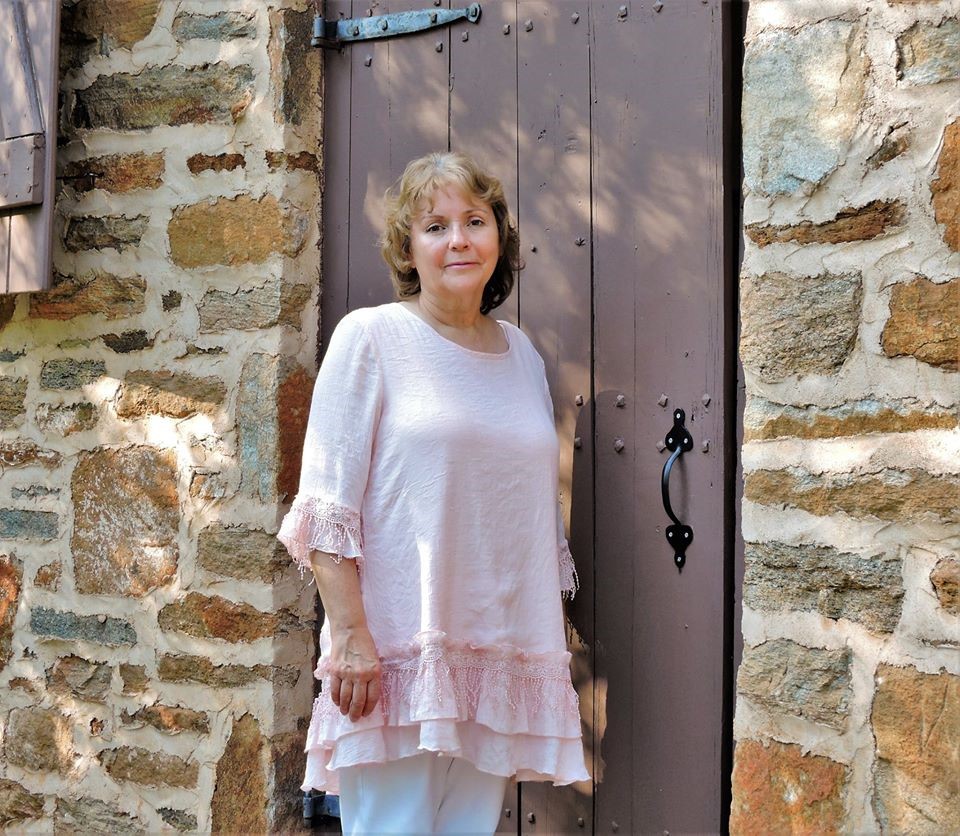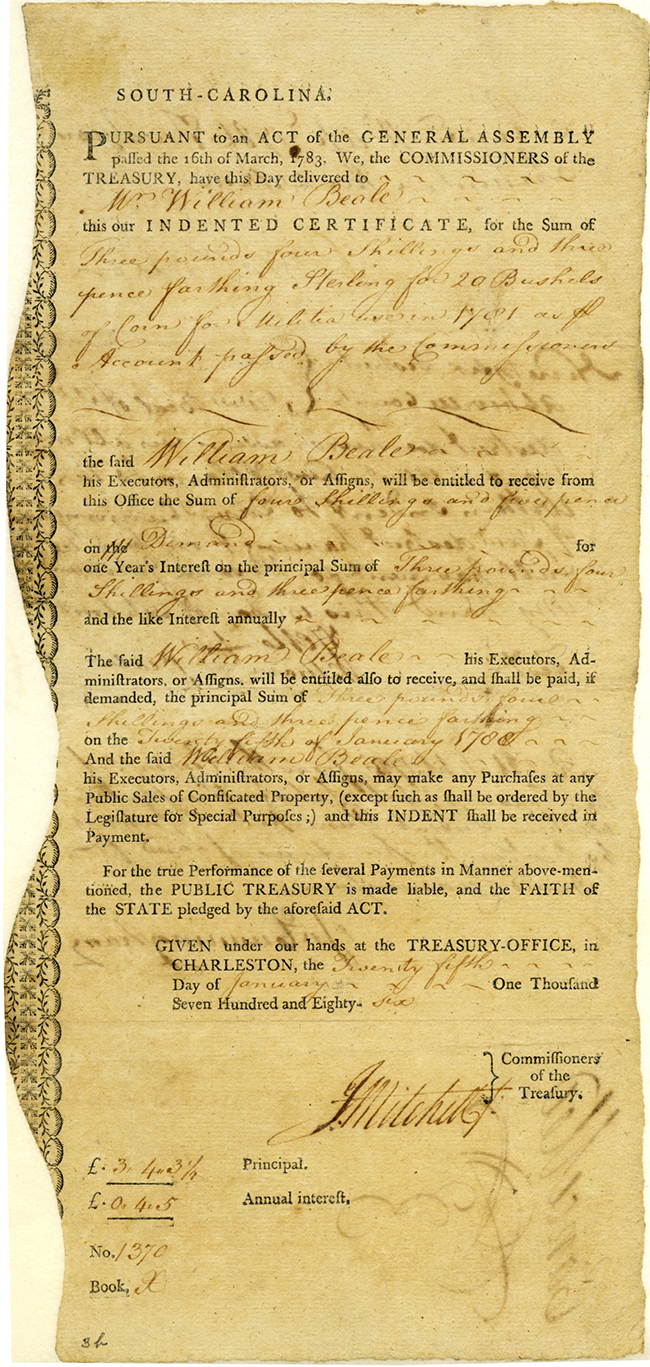
I have a Master’s Degree in American History with a concentration in Public History from Western Carolina University and an undergraduate degree (BA) in English from the same institution. I concurrently worked on both a Master’s Degree in History and in English while at Western, but after too many sleepless nights and too many aspirins, finally opted to go with the one MA. Maybe one day I will finish the MA in English as I was really close to finishing before I stopped. I started work at SCDAH in the fall of 2006.

What do you do as a Reference Archivist?
I spend half the day working the reference desk to help patrons locate sources to help them with their research. The other half of the workday I perform research myself in order to answer requests from patrons who cannot travel to our facility. My specialty is the Revolutionary War, but I also research questions involving other time periods as well as locate, copy, and certify certain documents, such as charters, for banks and law firms. On occasion I also speak to classes or organizations on such subjects as SCDAH’s primary source holdings, especially our Revolutionary War records, and on various famous figures or social history topics of the Colonial or Revolutionary period. For instance, a couple of weeks ago, I gave a two-part presentation on reading and writing in British Colonial America on Zoom to a high school class studying Colonial America.
Why did you want to be an archivist?
For me, becoming an archivist was perhaps the natural outcome of a journey that began when I was a child. One day, while browsing the shelves of the small library in my home town of Bryson City, NC, I found a small glossy book centering upon early European expeditions to the Southeast coast. There were depictions of plants and animals, and many quotes from a number of primary sources—and one of these concerned an event that took place during the voyage of Philip Amadas and Arthur Barlowe to the Carolina coast in 1584. Upon landing, the explorers climbed up a hill and looked down into a valley full of cedar trees upon which were roosting flocks of large white birds, possibly cranes. The men discharged a gun (a harquebus) and immediately the birds flew from the trees in such a great number and with such a loud cry that it seemed as if a great army of men had answered the report. In my mind’s eye, I could feel the sun’s warmth, smell the citrusy smell of the cedar, hear the ocean, and feel the wonder of the large number and beauty of the birds. That book triggered within me a deep desire to continue to discover history through the eyes of the people actually experiencing the events. As I grew older, my appreciation of primary sources, an awareness of the importance of their preservation, and a wish to help others locate them increased, and I was fortunate to have mentors and experiences that enabled me to accomplish my goals. My mother was a professional genealogist and record searcher, and I went with her to county courthouses and archives to help her gather information. Later, when in college, although I loved all of my history classes, I found myself gravitating more towards applied history, especially historical editing and public history courses, such as museums management, and working both at the Mountain Heritage Center Museum and at Special Collections, which is Western Carolina University’s archives. The same was true with my English major. I loved literature, but preferred linguistics, my classes on the history of the English language and on the history of books and printing, and my work with students at the WCU Writing Center. Becoming an archivist combined my love of history, appreciation of writing and documents, and desire to share that love with others. And so, voila, I’m here at SCDAH.
Do you have a favorite collection or document and why is it your favorite?
Deciding which collection or document here at the Archives would be my favorite is a hard choice because we have so many wonderful texts. I love the collection termed “Accounts Audited of Claims Growing out of the Revolution,” which is our main state Revolutionary War collection, in great part because of the social information you can gather about the people serving or providing supplies for the war, especially from the petitions for pension found in some of them. The researcher may even glean such tidbits as weather conditions during marches or battles, food preferences of the soldiers, the health of the applicants, and even eclipses. My favorite one document here at SCDAH, however, is probably a letter written in 1707 from Frances Rokeby to Reverend Mr. Rose, both residents of England. In the letter, she is urging Reverend Rose to accompany both her and her husband to America to teach the natives. Women were more often taught to read but not write at this time, but here is this intrepid lady not only penning her own letters but also willing to risk her health, perhaps her life, to sustain a long, uncertain journey to a vastly New World to teach people of a different culture from her own. Also, the “document genealogy” per se is fascinating. The lines of text are penned both horizontally and vertically to save paper—handmade and expensive at that time (although obviously a woman of means, Ms. Rokeby also was obviously a woman of thrift)—and part of the wax seal is still present.

What is your favorite part of the job?
The favorite part of my job is being able to hold and read the primary sources, especially those from the Colonial period, in our stacks whenever I get a chance. I also like working with my colleagues, who are always willing to share their institutional knowledge and give a hand when thorny questions arise—and these do sometimes rear their heads. No matter how long one works at as an archivist here at SCDAH, there are just too many documents in our holdings to get to know them all thoroughly—and even if one could, that person wouldn’t remember everything all the time anyway.
Who is your favorite historical figure or time period?
Perhaps my favorite historical figure would be King Alfred the Great, the merciful 9th century ruler of the kingdom of Wessex who rolled back the Viking invasions and initiated the steps that led to the eventual union of the various kingdoms to become one country—England. As for my favorite time period, in truth, I like the study of most of British and American history, but like a wonderful colleague of mine, Marion Chandler, used to say, “anything past 1865 is current events.” If pinned down, the American Colonial period is my favorite. I like researching the early “contact” period between Europeans and Native Americans and the subsequent “Columbian Exchange” of plants and animals that took place in the Southeast. I also love studying the rise of literacy and commerce during the 18th century, and the history of paper and ink—and, of course, the American Revolution.
